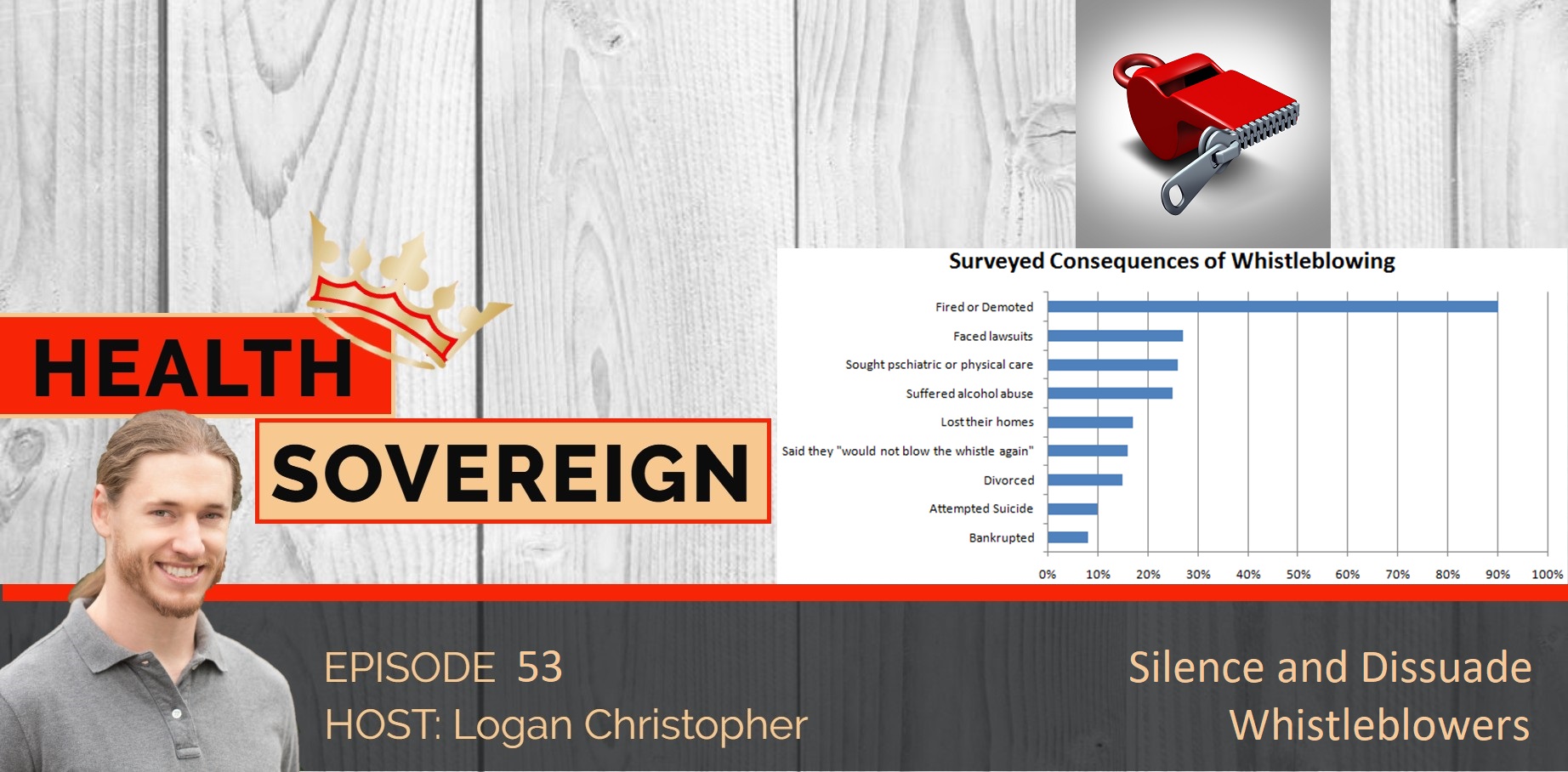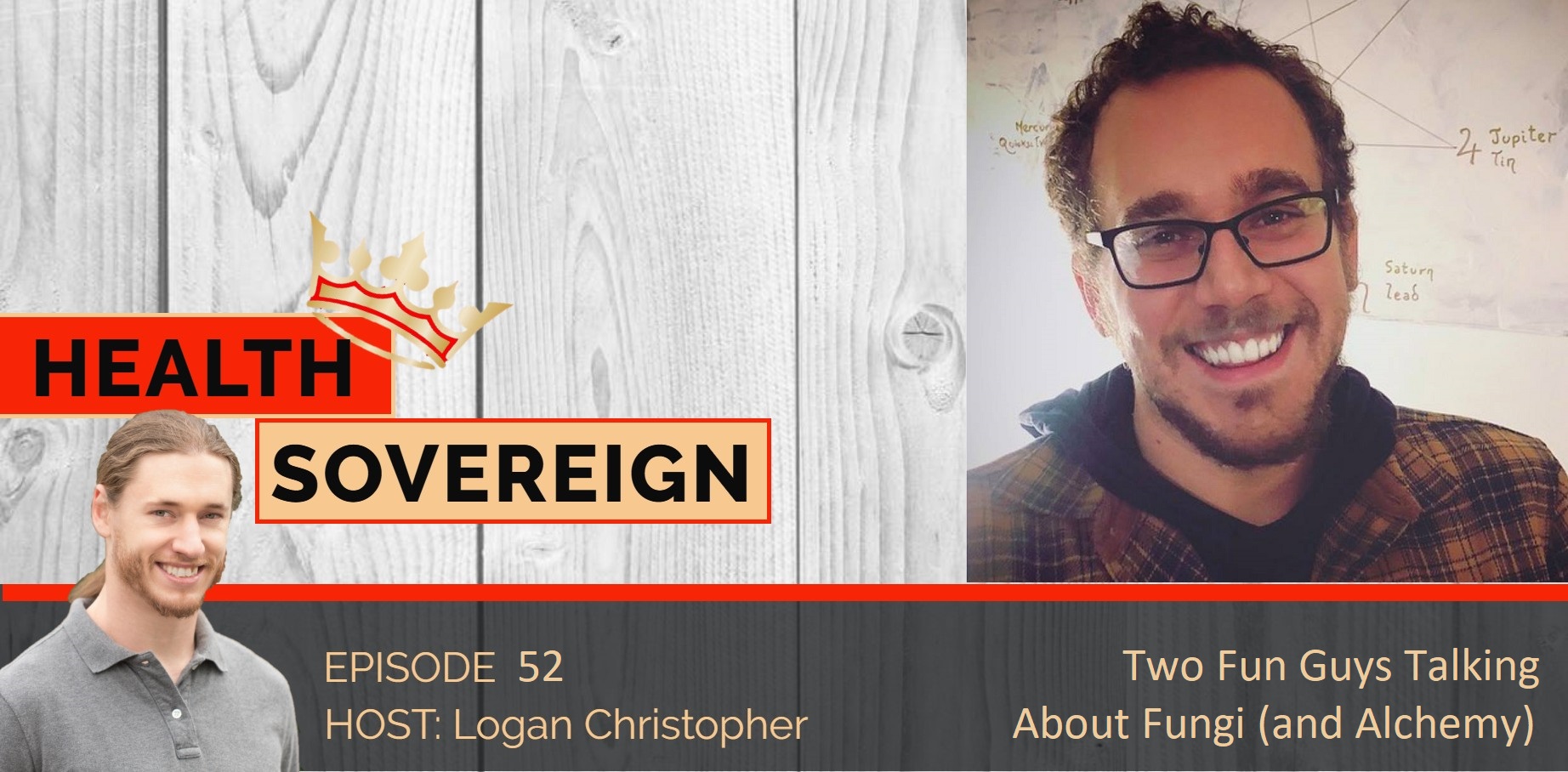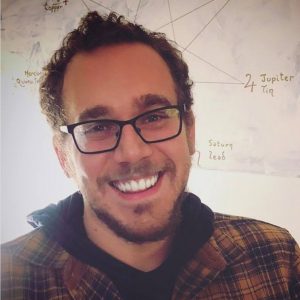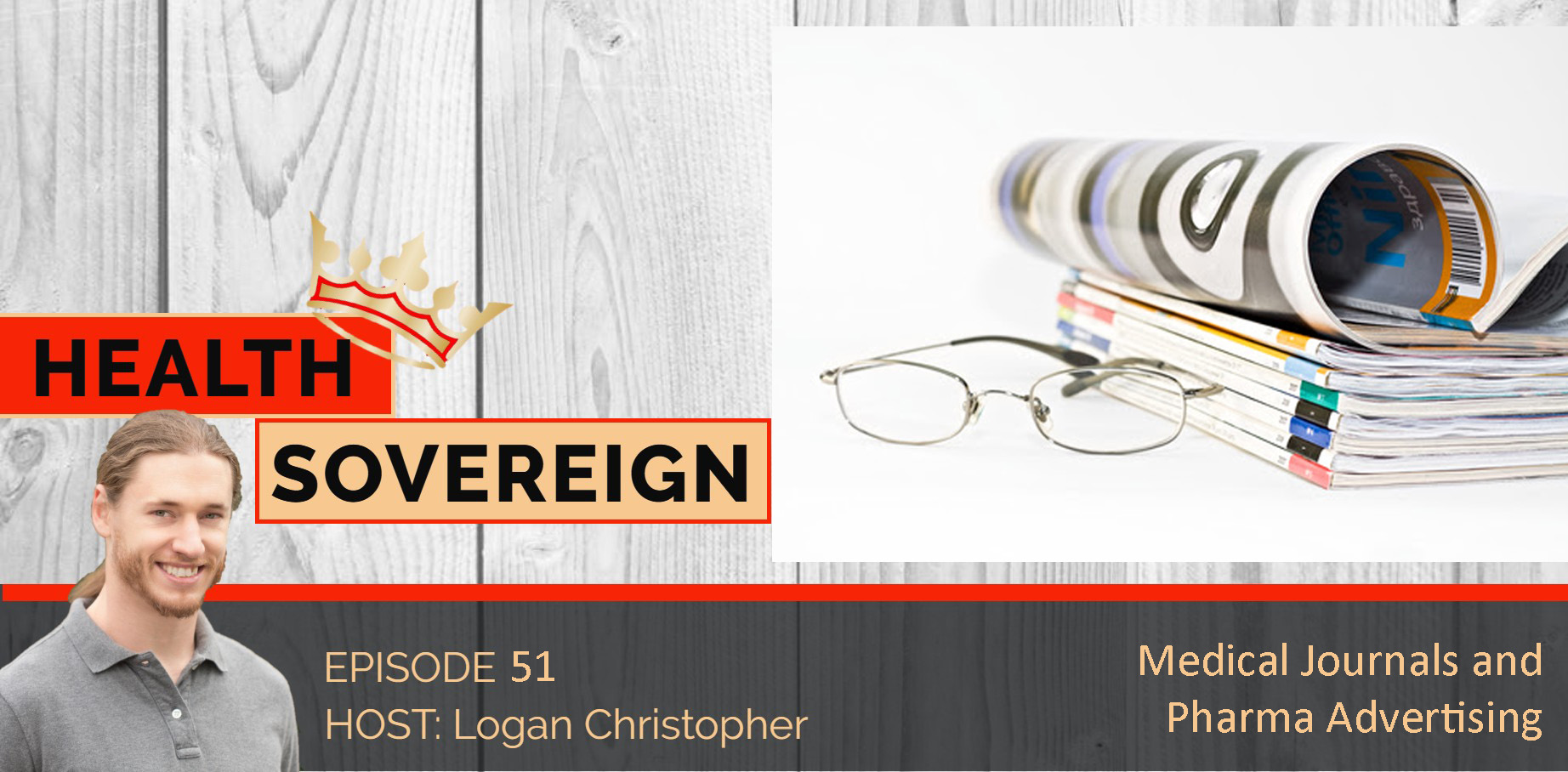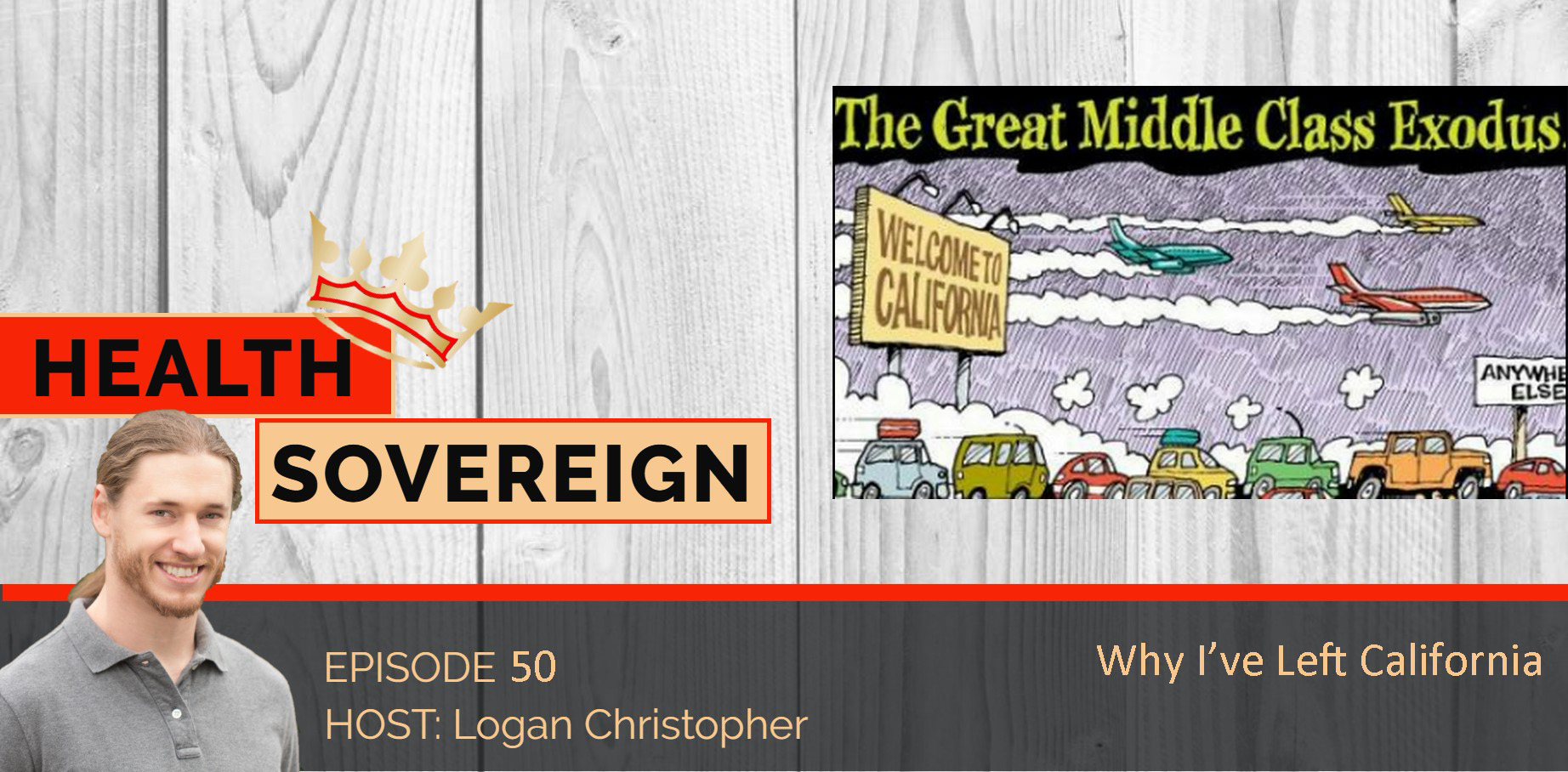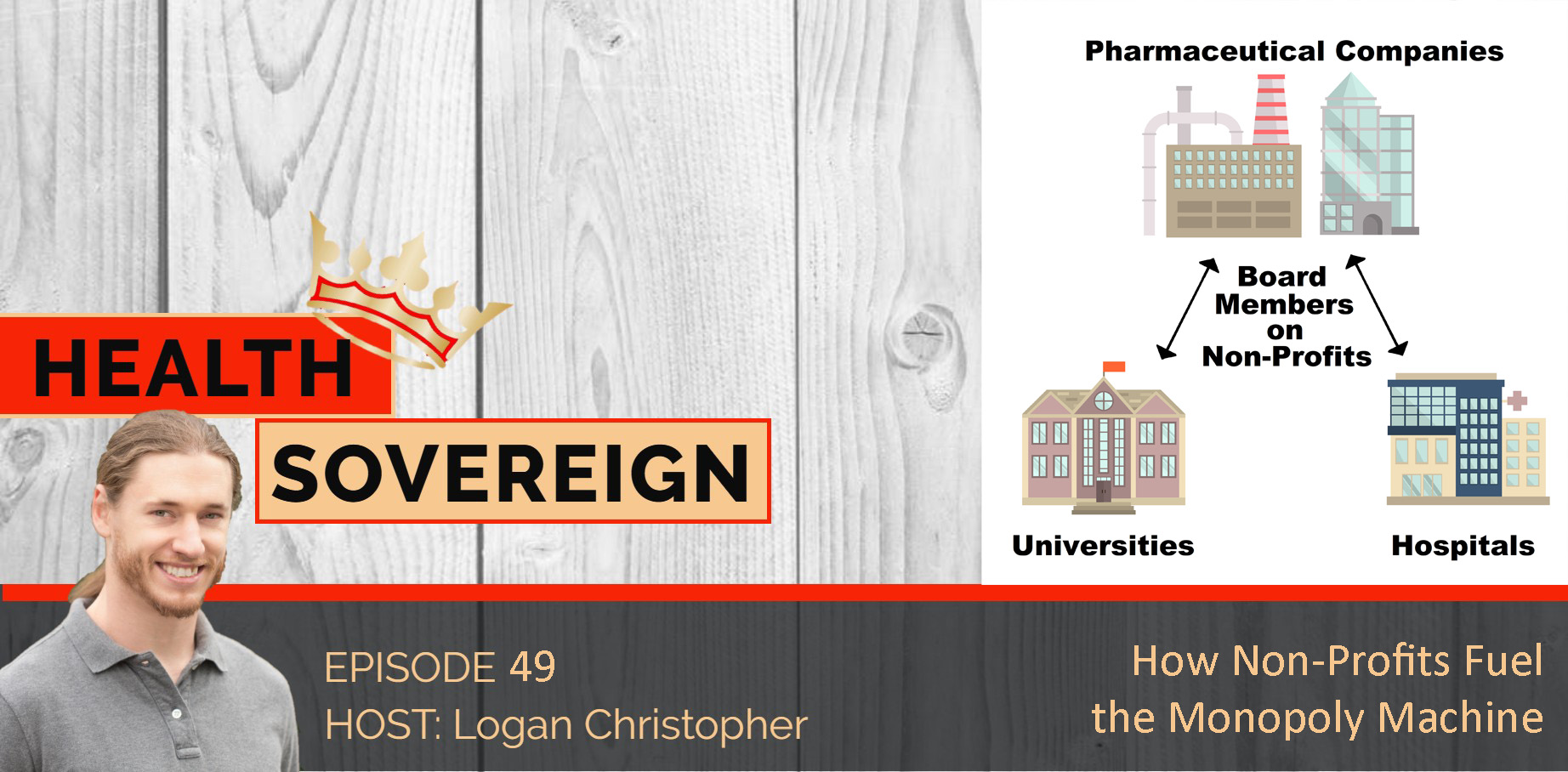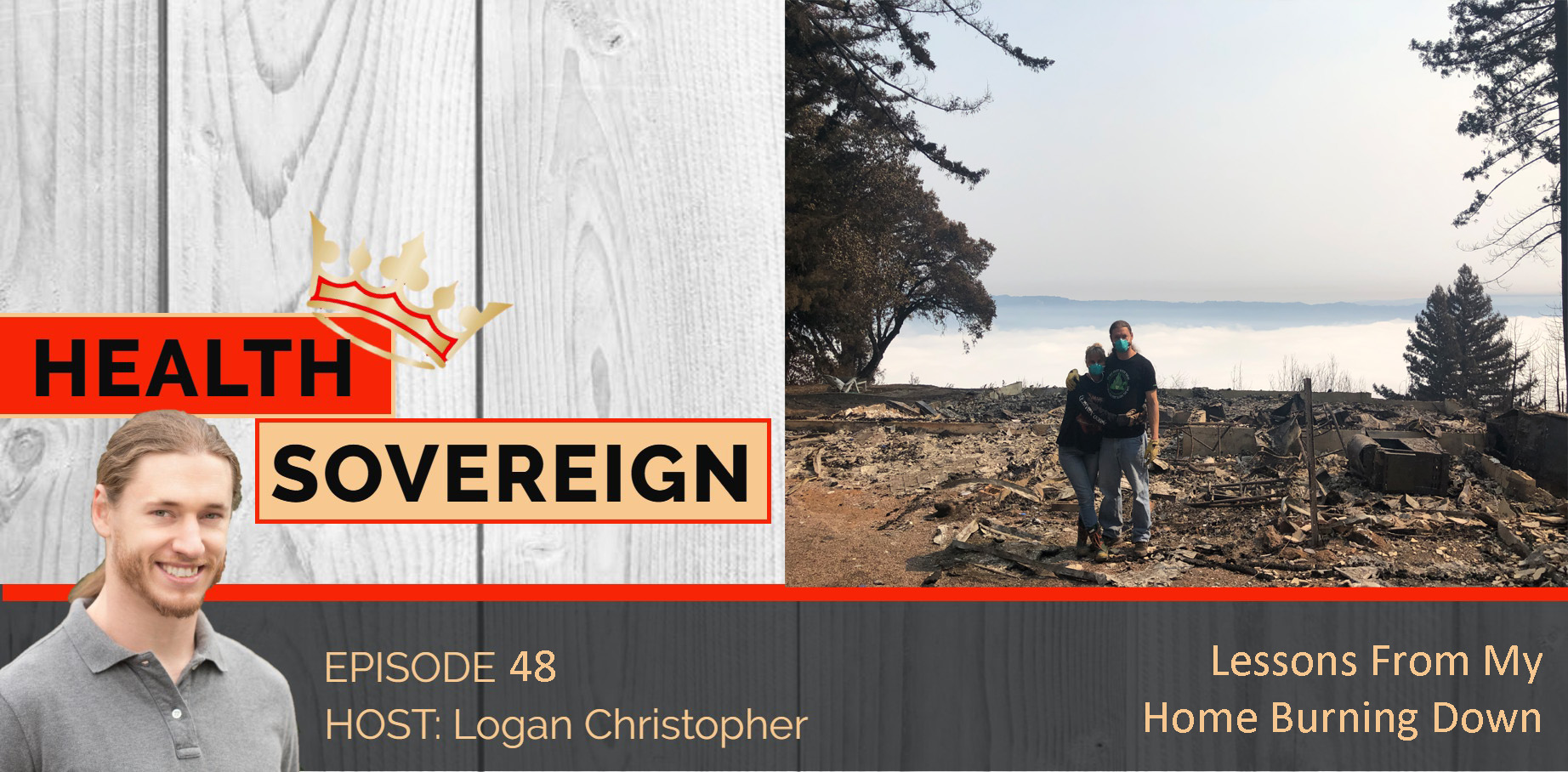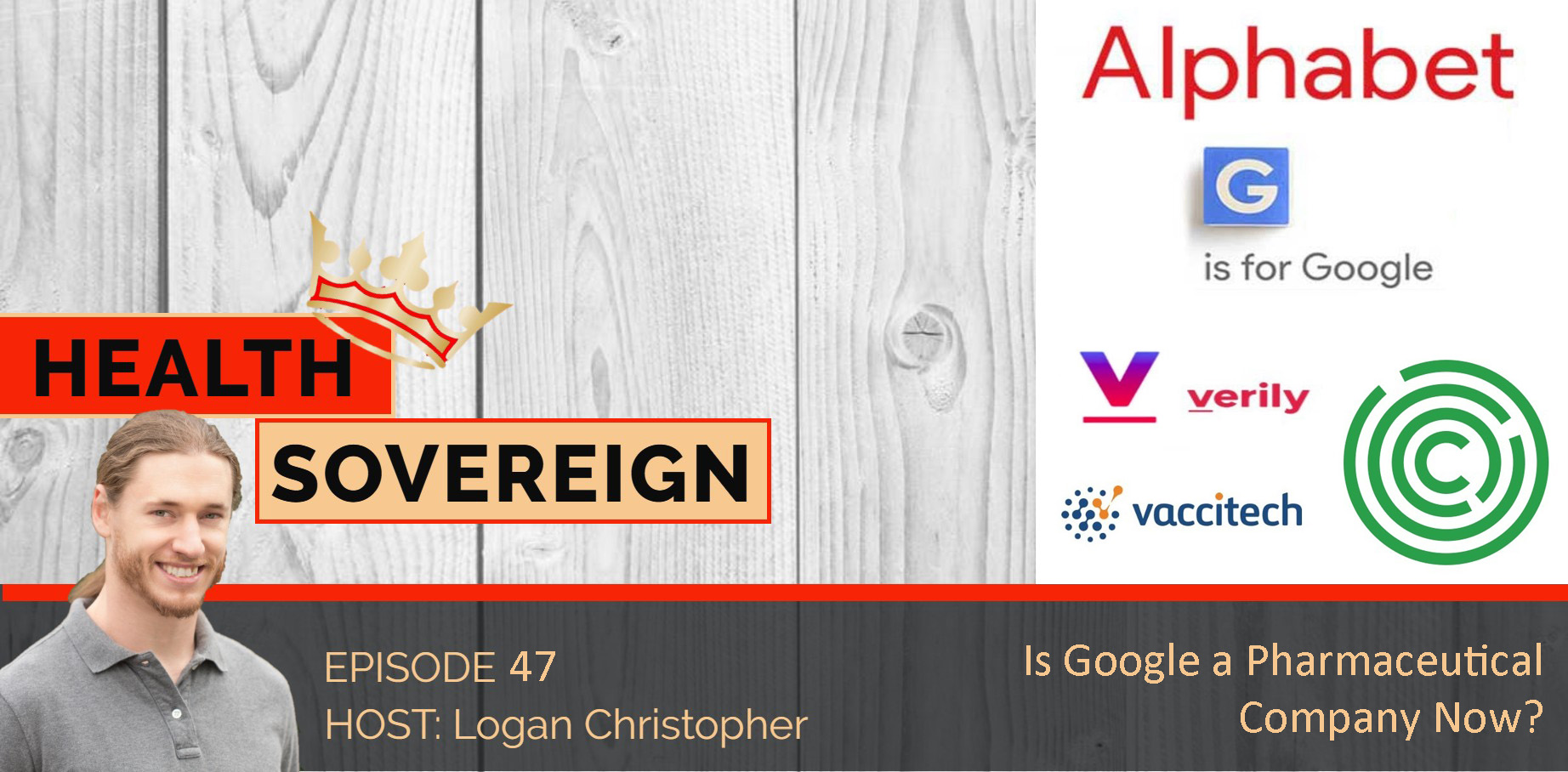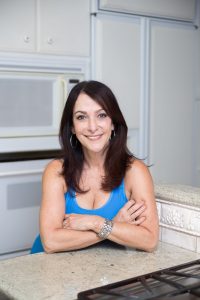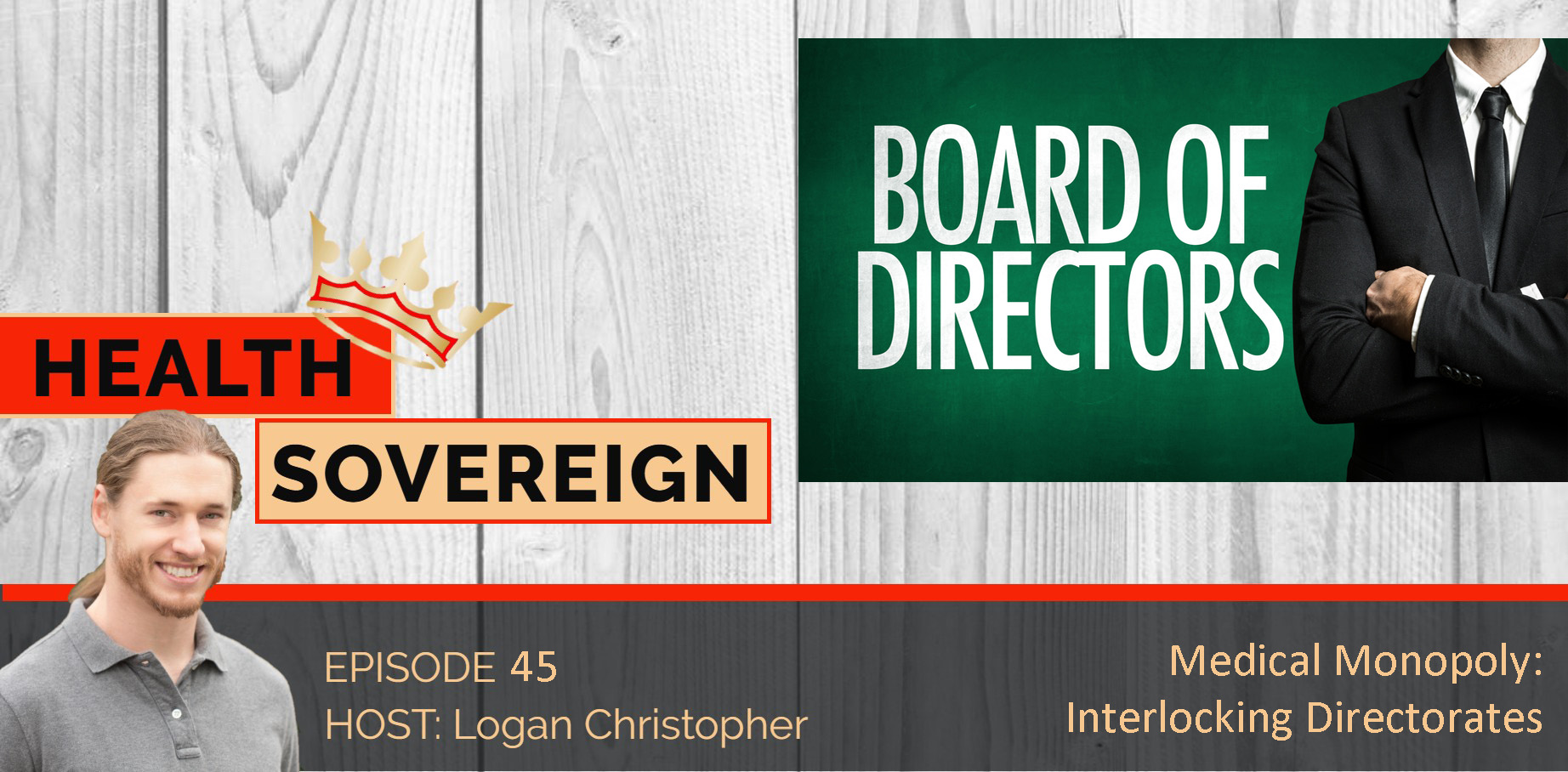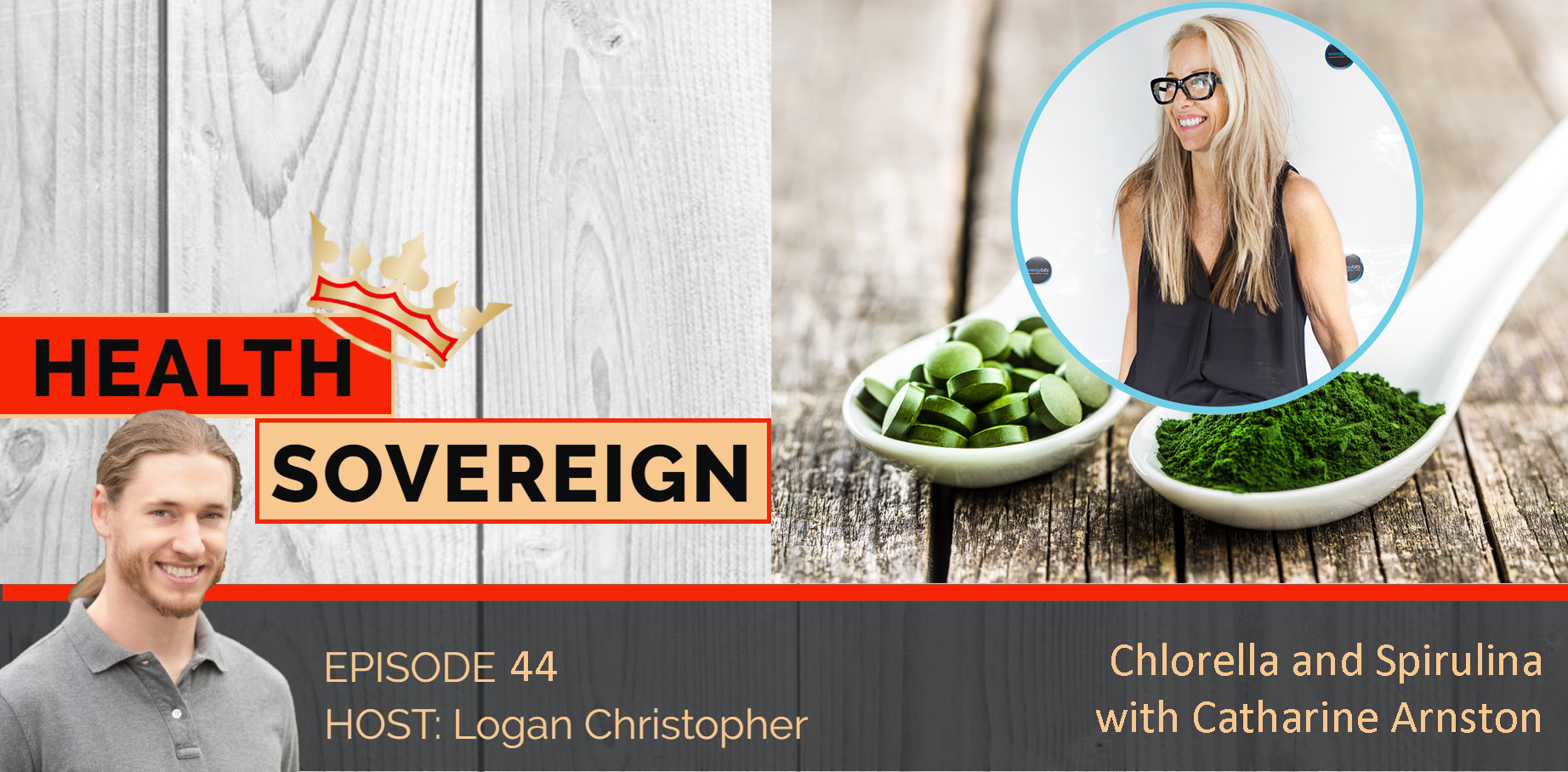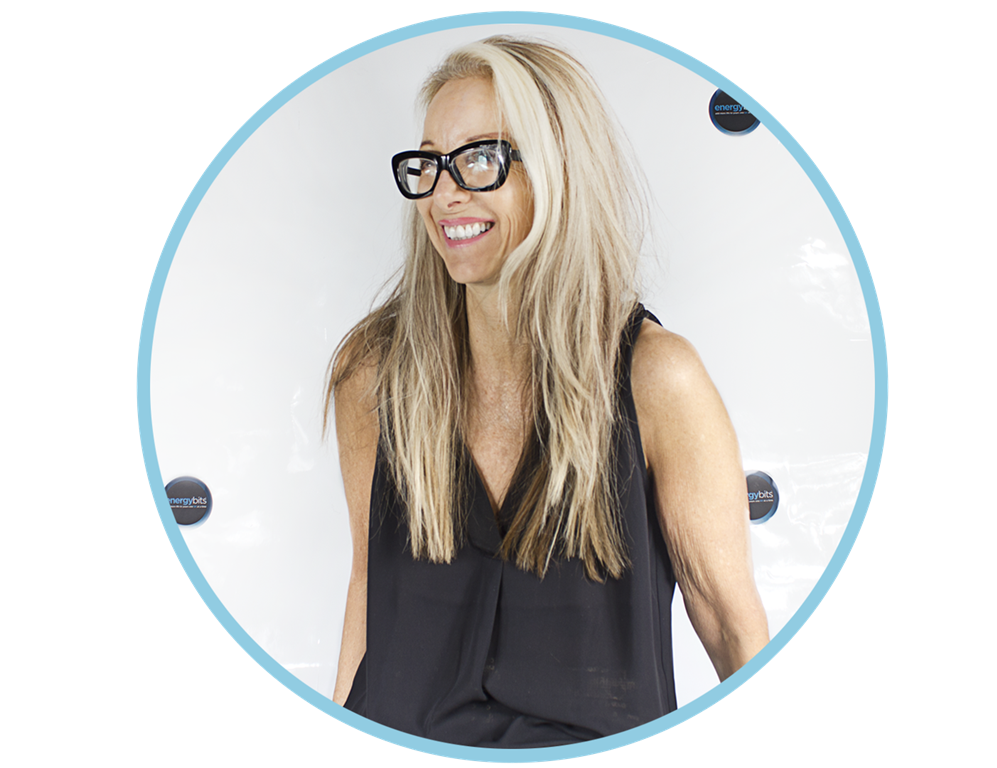Logan (00:03):
Welcome Don. Great to have you here.
Dawn (00:05):
All right. Great to be here, Logan.
Logan (00:08):
So I want to start with your story a little bit. You can give the cliff notes version, but how you went from, I mean, fit person and everything, but the low thyroid, which is the plague of so many people now as we'll get into yeah. Share your story.
Dawn (00:24):
Oh, well, yeah, it could be a long one, but not, I will try to share the cliff notes. It's the biggest issue like you have already mentioned was that it took me so long to be diagnosed with a thyroid disorder. The craziest thing was my mother was diagnosed when she was 40. It took me about 10 years to get diagnosed because I think they almost practically profiled me. Where if you see me, I'm very petite. I'm pretty energetic. So, you know, five feet tall gaining 12 pounds in six weeks to mostly any other woman, wouldn't be that big of a deal. But when you're five feet tall, it doesn't have a lot of places to spread out. And then when I find myself pulling over in the morning after dropping my son off at school, because I almost want to fall asleep, well, someone tells me you work out too much or you need more rest or this or the end of lights.
Dawn (01:17):
No, no, I I've had a pretty decent lifestyle. And I had already been in the fitness and wellness industry for years. So going to a doctor then going to a wellness practitioner and integrative this, and it, it was a battle and you know, that famous wine, well, your thyroid numbers are on the fence. Kind of a thing. It just led me to dead ends and dead ends, which made me start digging deeper, finding out ways and becoming my own doctor, becoming my own self care advocate. And I'm a, I'm a very organized person. So I ended up putting folders together of what I learned. And I was looking at the biggest advocates of thyroid hormones and menopause. I didn't get diagnosed with Hashimoto's autoimmune thyroiditis and low thyroid until I was 42, because at the time I was trying to get pregnant. So I already had a child from when I was 36, but you know, segway forward, new husband, new life, new everything. And it was just very odd. So now I feel better than I probably felt or looked better than I probably looked when I was in my late twenties, because I probably was struggling then. And didn't realize it, you know, then I was like a crazy maniac. Did cardio every day and was eating diet foods. So the weight didn't really, I was, you know, I was pretty miserable as far as my lifestyle because I was doing what every other woman did. That was a big mistake.
Logan (02:43):
We're following the paradigm to a T what you're supposed to do. Right.
Dawn (02:47):
And it was probably in some form of adrenal fatigue too, that I wasn't really aware of. And so then all of a sudden, when it started to snowball and I, you know, my friends call me the Energizer bunny and I'm 60 now, but I feel like I go like a, lost a bunch of years trying to figure out what was going on with me. So I made it my mission to kind of, I'm going to put this out there that, you know, every time you go to the doctor and they say your numbers are fine, it's like, well, what about when you have 10 symptoms? And what about, how do you sleep at night? And you don't just gain 12 pounds when you're eating really clean it up. So there's so many questions.
Logan (03:21):
That's about the, the testing in the beginning was it that I've heard and still some doctors do. It's like, we're just going to test thyroid stimulating hormones.
Dawn (03:29):
Exactly. The famous TSH levels, which could be something from 0.8 to 4.2 or some astronomical. The gray area is so massive. And when someone tells you you're on the sense of low, I mean, that to me sounds like I'm really low. And then at the same time, I went through menopause a few years after that. And that same testing again. Well, you're on the low really, really low testosterone, but women don't really need that. I'm like really, I was a pretty heavy duty weightlifter. And now anything that I do, I feel like I can't keep the muscle. I'm too tired. My recovery takes too long. So again, where, you know, I'm explaining to the doctor something, and then you start going to someone who's a little more cutting edge and whole body scenario, instead of just numbers on a graph, you know,
Logan (04:20):
Don, you don't have a medical degree. What, how could you possibly know more switching online or anything than doctors?
Dawn (04:26):
That's for sure. My parents always tease me and say, well, thank God we can call you dr. Don. And we never had to pay a fee to go to medical school. And I said, because it had the word school after it, I said, I'm way better on my own. I, I can dive in and go a hundred percent and find really good sources, which I have great access to really good sources. Now I had a, someone that I saw in integrative health that I was paying $450 to four times a year when I finally left is when the last day that I was there. And she says, can you write down that information? I want to, like, I'm going to start passing this out to my other patients. I'm like, and I'm paying you $450. No, I think I'm going to start doing something on my own.
Dawn (05:06):
You know, that's when I really knew I had something that I could, I could help people. My information was available. Plus I had done here for 30 years. So if you don't think I know what women have issues with and complain about standing behind the chair, you learn what every woman wishes they had, which is more energy because people say, you wish you were thinner. You wish you were. I said, no women, or most people wish they had more energy. Then you have the energy to shop for healthy groceries. Then you have the energy to consider working out and you have the energy to take a walk for mental clarity. So when you don't have energy, which is obviously low thyroid and aging and all those things that were told you lose out on a lot of life, you know? So that's a huge part of it, the energy thing. So that's why my business is kind of the energy fitness, my Gmails energy wa I mean, it's like, everything's constant energy because I want it to be constant though. I don't want it dipping and dropping and no one knows why, you know, I feel like I can kind of gauge it a little bit.
Logan (06:07):
Yeah. Energy is so important. I think men too, it's, it's, it's a hard subject to talk about this because it is so kind of a loose word. Like what do you actually mean by energy? Like energy systems where you can talk to subtle energy. There's so many different ways. So for people to understand and often say the, the energy levels people have, it's slow decline over time, right? As you age, as the thyroid metabolism starts to go out the window, it's so slow. People don't notice it. That's why I like the herbs that my company lost empire herbs a bunch of 'em people. What I really am for is people that feel like a noticeable difference in their energy levels. And that's great for the reasons you were saying. It's like the jumpstart to the system when you have energy, Oh, then it becomes easier to do the things you should be doing, like eating better exercising
Dawn (06:58):
Of course, a 100%. And, and, and back to your, your herbs. I mean, the ashwagandha drops that to me, that's way better than a cup of coffee, because I know those ancient healing methodologies that have been around for centuries are there for a reason. And we just happen to be tapping into that now and learning about that, where you still have rows and rows at the stores of the energy drinks that I'm just like, there's no crash and burn when you've got these really good, you know, medicinal type herbs that are from a doctor and they're not, and it can with 500 things that sound like it was created in a lab. You know what I mean? We I've really tried to get my whole group of women that I coach and people in my world more aligned with that way of thinking, you know, that's a whole other thing too.
Dawn (07:46):
You have to change how you think, because for years, women were told, you know, less food, more exercise, more cardio, it makes you more productive. No, no. So women feel guilty when they're not the super woman that they're supposed to be. So everyone has these badges of I follow this diet, or I follow that. I consider myself a diet hacker. I follow a little bit of everything and as close to nature as possible and as whole foods as possible, but it doesn't have a title. And I won't name any of the top, top titles right now that everybody follows. Cause everyone knows them. You know, there's no Dawn diet. And then maybe I have a different need. What might you know, when I had a shoulder surgery a year ago, I thought I better take in more protein and I better not eat as many carbs because I'm sitting on my butt, recovering my laptops more. I don't, you know, not lifting weights. So like, that's how I think what's my activity level has to kind of dictate how I'm going to eat that day. Or, you know, you know, it's not a calorie counting or anything like that. It's just a, I energizing,
Logan (08:52):
I haven't looked at calories in a long time and I feel very good about that. Same. Oh my
Dawn (08:56):
Gosh. I know, I know I'm coaching a woman online out of state right now. And she just says having the hardest time wrapping her head around, what do you mean? We're not counting calories? I said, well, it wasn't, I'm counting is that you're getting about eight grams of fiber a day, which is about not even a third of what you should get. You know, I was just like that kind of stuff of not, let's not talk about what you're adding and subject. Let's talk about what nutrients you're missing. Right. That's what I tell people. I look for a missing link and I'm sure you do too. Like when I was telling you my story and what things were going on with me, it's like, you know, you gotta go that little bit deeper of, it's not just omitting a whole food group. It's like, you're also omitting nutrients and things that your body might do well with metabolism. Yeah. Right.
Logan (09:40):
Article I did awhile ago on thyroid to brush up on the topic. Cause I knew my model as I am still fleshing this out. If health is really about inputs and outputs, right. What's coming into the body and we look at the physical level, like micronutrients, macronutrients included in there. This is important stuff. If you don't have those, like no amount of positive thinking, no amount of exercise is going to make up for a mineral that is used or vitamin that is used for enzymatic reactions in the body for your hormones to actually function. Right.
Dawn (10:15):
Exactly. That's the thing. Yeah. And that's what I talk to women about constantly is that you can, you know, you don't have to be a doctor and you don't have to be on a medication to still be able to manipulate to some degree whether your body works against you with hormones or for in your favor, you know, so right. The input and the totally.
Logan (10:35):
Yeah, yeah. Thinking about this, like hormones are super important. I've deep dive into all of them, especially around the sex hormones, looking at that, it's a big part of what we do. And so many things that can support it and often like root cause is a interesting thing. And the more I think about this, like there is no real root cause it's always like going back, you can always chase it back further, but micronutrients, lack of them, like if there is a root cause that's
Dawn (11:02):
Oh yeah. Right. And that could be a simple one that can take someone to a really great level. And you know, it's funny. I just recently coached an extreme athlete and this woman has a PhD and she's done tri she's done. What is the ultra marathons? She's also done the iron man three times. And then her, you know, the verbiage is I eat clean.
Logan (11:27):
What does that mean?
Dawn (11:28):
Clean does not mean it has a label that says it's all natural on it. And then you turn around the back and it's got 50 things that you can't even pronounce. You know, I said to her, if you can't read it, you can't eat it.
Logan (11:39):
Yeah. Oh yeah. I eat clean. I eat healthy. Every person has a different meaning for these. Like it's a vague nebulous term and yeah. A person that believes one diet versus another completely different things. So that's what you mean by
Dawn (11:54):
That. Well, exactly. When you were speaking of, you know, the output type of thing. So I said, I already had to come up with, in my head, just speak to this woman thinking the first thing she said to me is I'm not going to hire you. If you're going to tell me to work out less. I said, I'm not going to tell you to work out less. Obviously it's in your blood. You're an extreme, active, it's what speaks to you. But how sooner or later I feel like some wheels going to fall off the bus, whether it's already happening internally with too much inflammation, I said your recovery and how your body recovers on a cellular level from the inside out so that you can keep doing this, you know, is what is the utmost importance to me? And I knew from myself when I, when I turned 50, I did a bodybuilding competition as, as a personal goal to myself, you know?
Dawn (12:43):
And I was squatting. I feel like I'm telling this story about someone else. I mean, I was squatting 180 pounds when I weighed 98 pounds. And I mean, now I could probably squat 115 on a good day, but I don't have to. And I don't need to, but my intake of calories was quadruple of what it is. Now. I try to explain that to any woman, you know, meeting with the coach and him telling me how you lift weights, are you kidding me? You need to triple your calories. You need to triple your protein. You need to triple your water intake. And I was like, dude, I'm trying to lose body fat. But I knew, I knew in my head and that's why I hired him. But it's that barrier to get through with people. This is how the body works, yours, mine. And everybody's even though there's nuances with each one of us, you know?
Logan (13:30):
Yeah. Calories can be important in like bodybuilding competition. There's one place where you do want to count calories and be very,
Dawn (13:36):
Especially when you're deficient and trying to get stronger, if you're trying to be healthy, right. Not at all. No. That's why I'm saying in different times in my life, my body has had different needs. And that's why I went to a coach that knows more about it than me. You know, you train, you train weightlifting athletes. I will listen to you. If you train someone that's, you know for some other right key or whatever, I'm going to listen to you, you know, go to the experts. Right.
Logan (14:07):
I wonder if you had asked your client, like if you could get the same, like performance results compete at the same level or better in your competition while working out less like spending less time, would that be of interest?
Dawn (14:21):
Well, you know what, we did have those kinds of conversations and it was more of, I think what, and this goes back to women and how we view ourselves and what we've been told too. I mean, she was a very, a plus plus personality. And when she sent me and I had met this person years ago, in-person so now with COVID I couldn't get, see her in person. Well, I could know, but anyways, that's beside the point. So she sends me pictures of herself and telling me she wants to get rid of her belly. And my first thought is women would kill you to hear you say that sentence. And they would die for that body, that skin so that you can bend, you know, I mean, but her idea and what she did, what her output was though for how strong she was, she really did not appear to be very muscular.
Dawn (15:08):
And I knew then when I dug into her diet and looking at her nutrients, macros and all that, not counting a single calorie, she was extremely deficient in protein, which to me meant, okay, you know, there's an argument of how much protein, too much protein plant protein and all that jazz. But she was clearly way below what I would have recommended for how much she put out in strengths. You know, most of her activities were more cardio based. So she was also very low fat. I mean, she was a little sad. She was low carbs. She was low everything, but her brain is what kept her body going, which was even a little scarier to me saying, I'll never tell you to stop working out. However, something in your body might make you stop working out because of not having the nutrient density that you need to do. It is fascinating. Yeah. Right, right.
Logan (15:56):
So going back to thyroid. Yeah. This is one of the biggest, largely undiagnosed problems. Almost every, especially women, women have it like five to eight times,
Dawn (16:08):
Five to eight times more boy, that is the truth. And I think I've witnessed it besides my own self. I've witnessed it with so many women, those classic symptoms too. It's like the thinning eyebrows, the hair loss, the fatigue out of nowhere. And then it's a different fatigue. It's not like you can lay down or have a cup of coffee and be refreshed. It's like the deep down, you know, the cold hands, the achiness of your body, that it just can't take another step. So all the brain power in the world sometimes doesn't make your physical body stand up and do that. Unless you end up with that, that reverse thing of forcing yourself because you have that kind of personality and then it hits you harder after. And then, you know, I didn't get sick. I didn't get cold, but if I was run down who baby I was, I was down.
Dawn (16:59):
So, I mean, I do take a compounded thyroid medication and it's very low and I get it monitored regularly. And I love my doctor. She's a Dio and we work together and she says, she loves it when I come in, she always books off extra time because we just talk about people, how they live their lives and what they're look for in their medical care, instead of being a huge self care, taking care of themselves and knowing that they have some degree of control, you know, actually that whole thing of just because your mom got diagnosed with heart disease or your dad died of liver failure does not mean you're good. Are you predisposed? Is it nature or nurture? Did you learn the behavior of the terrible foods in the sedentary lifestyle? And then you have a heart attack or is it, you know, I mean, there's just so many things to look at smarter, smarter than the gene pool. I hope as we learn more epigenetics,
Logan (17:50):
Like so much in nature is nurture. That is like encoded into
Dawn (17:54):
Yeah. Oh my gosh. Yeah. Then you can go so many layers deeper because I think too, that when you talk about thyroid and women going through menopause, that's the other thing, the hormone thing, women talking about menopause being seven years long. And I'm like, well, you're just like, people like to name something. I said, we take the word menopause out and steroid out and say, you're deprived of sleep. Your house is filled with air freshener and Downy fabric softener and all these chemical things. You're I mean, just, you know, you could go for a super dig in all the things that I think are so toxic to us,
Logan (18:31):
We're into that. Cause the missing micronutrients, the other side of it, and this has to do with the outputs, like detox or eliminating from getting them in the first place, the various chemicals the halogens also plastics, the various thyroid disrupting chemicals.
Dawn (18:52):
Yeah. That was the endocrine disruptors.
Logan (18:55):
What are some of the biggest ones? Like pretty much any client comes to you as like, okay, get rid of this. You're just going to be better.
Dawn (19:03):
Right. Exactly. So the first thing I say is all the chemical products that I love it. When you tell someone down to your skin care onto what you wash your clothes with. And there was
Logan (19:13):
Why women have five to eight times, so you think skincare and like,
Dawn (19:16):
I think it all plays a part. I think,
Logan (19:19):
Got guys do not do this stuff like barely even self up, right?
Dawn (19:24):
No, exactly. No guys walk around with their, you know, beer belly and their Speedo on and think they're hot as anything. And women stand in front of the mirror and put on 15 more layers of cellulite cream, more layers of spray Tanner. They put more perfume on and now you've just created the biggest tax hormonal dump. And speaking of that, then they're constipated because they don't get enough fiber and they got all these other things that just make their bodies not work. Right. So I just think to me, I think, and this could be my own thing from what I've experienced and what I've asked in my little questionnaires of, like I said, standing behind the chair and having done this for 25 plus years and coached women only is I think the women that have the, the women that I've known that had the biggest issues with weight and energy levels, they definitely have a hundred scented candles. The best air freshener is the hand, the flavored hands not flavored, but you know, sent it hand sanitizers and the things hanging from their car that makes everything smell to me. Horrible hurts my brain when I smell that stuff. I just think that
Logan (20:34):
It's a warning signal, right?
Dawn (20:35):
It is. I think my brain is telling me for a reason, getaway breathe, fresh air, and you go to take your dog for a walk and all you smell is someone's dry your sheets coming out of the house, you know? But all those things, I don't think if living in a small house with closed windows all winter, I don't think breathing in. So why would that not be any more detrimental to your health than smoking a cigarette? It's going in your lungs? It's going on your skin. It's creating some tax end result. You know, I think it all goes together from skin care to washing your clothes with something like that, to what we eat, what we put on. And then, you know, you go, I'm more into now even looking at the soil, you know, our soil quality. I don't spray my yard.
Logan (21:22):
Yeah.
Dawn (21:23):
I can pick my weeds out of my yard. I know my neighbors get their yard sprayed. Of course people tell me it's a waste of time. It's the sprays. Get a drift into your yard. I'm like, okay, but I'm not walking across. It's probably going to be less. I mean, I don't live in a bubble and I'm not like so snappy to that stuff.
Logan (21:40):
That's a thing. So even if you only organic, you don't use anything that like, we're still getting it. Cause it's in the very air that we breathe, like BPA from plastics can aerosolize and then it's acting as a Zino estrogen in the body having these effects. So we can't eliminate it, but we can do a whole lot to minimize.
Dawn (22:00):
And I'm telling you what, like, like when I was younger and when the snowball effect started to happen with the all of a sudden weight gain and then this hair loss, and then my eyebrows and my mom had gone through this horrific time where I literally thought my mom was going to die. She got so lethargic and her hair and her skin, she was laying on a couch and this was, let's see, I was probably 35. And cause it was right before I had my son and I remember thinking, Oh my God, if my mom's going to die this young, I better get to work and have a kid. So she didn't have a grandchild and your brain gets up. And then when I used to go to the doctor with her and the doctor was like, well, here's your Synthroid. There's not really anything else you can do about this.
Dawn (22:41):
It's gotta be something else. And I wasn't in invested like I am now in that kind of a health world. But you know, that was 20, some 30, some years ago, but boy, I wish I could go back in time with what I know because my mom would never have gone through. And she went to, you know, she called him a witch doctor at the time he went to this guy that she came home with all these little tinctures and all these you'll laugh at this, this, this doctor, his name was dr. Nugent. I said, just think of Ted Nugent. Yeah. I said, he's the guy lived on the land. He's got to have something in there that he knows about it. You know,
Logan (23:19):
That brings up some interesting points. I want to talk about medication. So yeah, the doctor, the standard frame is if you're low on thyroid, then we fix it by giving you thyroid medication. Right. There's ones that are actually like using the pig glands or different things versus the synthetic ones. Can you talk about that? And also I've, I've heard many times, once a person is on thyroid medication, that's really hard to get off. Can you speak to that?
Dawn (23:48):
Definitely. And there's still a lot of controversy. I think I, I think that even right now, between the combination of the medical field, the holistic, the integrative, all those together, so have very conflicting views on it. I, I personally believe that as long as your symptoms are lowered, like the way I am right now and the way the women that I've spoken to that either went from zero medication. I'd never want to take a medication, but had heart issues and things like that. You know, Hey, conventional medicine is there for a reason if you are taking per in it and trying to understand it, not just because your doctor says, take these seven medications. So I have lowered my medication because I think I've up things in my life that I am taking control over that I didn't think was in my control before I take a compounded T3 and T four, that's the other controversial thing, you know?
Dawn (24:47):
So you're taking a thyroid medication, but as your thyroid still producing the right hormone, is it converting to the hormone it's supposed to be? That gets so deep and crazy that, you know, so I did create a product that actually I call it the blueprint to fibroid health, because it walks you through whether you've been diagnosed or not what questions to ask your doctor. You know, it seems so daunting to go to an endocrinologist and they say, Hey, your, this here's your medication by, so you take your medication and three months later you still feel the same or worse and you're still putting on weight. So what do you go back and get more medication? No, it's like you start to look at what are the other factors and what are the other numbers? So there's a lot of T three to four. Then you get the, like we talked about the hormones, the testosterone, the estrogen, all those hormones combined into either that hormonal shitstorm or one that is, you know, got you feeling good. And got you looking at what choices you can make, just like any medical condition, you know, a diabetic, isn't just going to say, okay, I'm taking my insulin now. So I'm good. Right? It doesn't usually, and you can see the healthy people with diabetes and you can see the people that, you know, leave it all into their doctor's hands because they don't, they don't either haven't been educated enough or open minded enough or around the people that can help them know that they have options. There's options. There's so many options.
Logan (26:12):
Right? Well, that speaks to is one of the things when I was viewing my notes was cellular hypothyroidism. I don't know if you've heard that term or thyroid resistance. So similar, you brought up the diabetics and insulin. So this is insulin resistance. The body may be producing enough insulin, but it's not going into the cells. Right. And the way I think of that, the, the cellular membrane is like communication portal for the cell and that's made up of fat. So if we have low quality fats, like trans fats for instance, are not going to be able to talk to each other
Dawn (26:50):
Or break through the barriers. Like, I feel like if like you explain it to a layman, I said, imagine putting a film over all of yourselves, that's these toxic membrane that you can't break through it to send them messages to the rest of the body, to do what it's supposed to do. When you start stripping away, all that, all those, you know, invaders and your body, you know, it goes back to people always ask me what detox do you follow? And I say, well, I try to eat well, enough, move enough. I do some dry brushing. I drink a lot of lemon water with ginger so that my body is in a constant state of detoxifying. Naturally. I don't have to do a three day fat Slusher, you know, guzzle down something that makes me run to the bathroom or something for two days. And then I think I'm skinny or whatever.
Logan (27:37):
Yeah. So with, with the, the cell. So thinking of that, like hormones are chemical messengers. I think that's one of the best ways to think of them. Whether we're talking about testosterone, estrogen, thyroid, it is communicating a message to the cell for it to do something so understanding that we can look at different things. So yeah, there can be deficiency of T3 or T four. And I think it's useful for people know that the three and the four are iodine atoms, and that's one of those critical nutrients. I want to touch back on that. But so you can have sufficient quantities of there and still be having these problems just because the cell, your membranes aren't working. Right. And I think that speaks to one of our problems with testing as a whole. Yes. It can be definitely worth it to go into all the different numbers with thyroid or other issues you're having. But I don't think there's a test that can look at is your cellular membrane communicating well at all. Right. And that can be, that can actually be more of the root issue than the hormones themselves. Right.
Dawn (28:36):
Right. And I think that people don't even know what to ask. And I think that, you know, just like, you know, the girl, doctor, Google, you don't really know where to search. So it is very overwhelming. And I have so many people that contact me and say, there's no way that you have a thyroid issue. How can you act like that and do what you do and look like that. And I'm like, it took years of me figuring it out. So you don't have to do the legwork anymore. Let me, let me just please give you what I know. And even if you start applying some of it too, you know, it's not that hard work because when you start to realize your body is meant to feel better and it's a more natural state for it, if you start getting rid of those things and it doesn't happen fast.
Logan (29:22):
Yeah. Yeah. I think that's my philosophy is we should be energized, feel good, be healthy, pretty much all throughout life. We're all going to die at the end. Please do recognize that. And there's like a short, sharp decline at the end. That's like ideal to go. That's our best night. So if that is not happening, then something's wrong. And doctors are great in certain circumstances. Like you're, I'm being ripped off outside of that less so. And you just think your general doctor, right. They've heard about thyroid in school probably have not studied on it since then. So they, they're going by testing protocol. That is, there's the, what did they call it? The translational lag. Right. So 20 years of science ago, they're operating off that paradigm. Cause that's when they, they learned it. As opposed to going to a specialist, that's going to be much more up on the subject, be able to run the proper tests, be able to diagnose and give better recommendations
Dawn (30:18):
And hopefully listen to more of what you're experiencing. Because even though there's those five or six things across the board, that seemed to be the norm when you have, whether it be menopause or thyroid issues, there are still things that, you know, you'll have someone say, but I have this and I never read that. That was one of the symptoms. Okay. So we are all very unique, even though we have a lot of sameness, there's a lot of things that my body might present, something totally differently. And then you can go back to the nature nurture. Well, I was raised in a very activity based household and go get her mentally and physically. So that's probably a part of my chemical and nurtured makeup, you know? So that will make me not want to lay on a couch because I didn't think I was allowed to. Yeah.
Logan (31:07):
So with iodine being part of these thyroid molecules, in your experience, working with people how many people are deficient on this? I, I always recommend like simple tick iodine. See if it helps if I'm talking to someone with thyroid.
Dawn (31:22):
So now what, so here's the thing that so I was also diagnosed with Hashimoto's autoimmune thyroiditis. I was actually diagnosed with that before I was diagnosed with low thyroid. So I think that what I've learned throughout the years too, is I was I was supplementing with iodine because I had read that it was if you had the symptoms of low thyroid and this was in the very beginning stages of my really digging into all this I think that actually made it worse for a while because well, first of all, people have to know, you're not just putting more salt on your food. And then, you know, there was everything from kelp supplements to iodine infused this and that. So I was toying around with that suffering from massive hair loss getting super, super tired. So I just started, instead of adding more supplements in my life, I started taking less to see, okay, can I just work this with whole foods?
Dawn (32:16):
So I think in answer to your question though, Logan, I believe that for low thyroid iodine is essential. I don't think that many people in the United States are deficient with it because of iodized salt. But if you go to the healthier I'm making the quotation marks right now, most people don't even use the iodized salt anymore. They use Himalayan sea salt and they use all healthy salts that don't have any iodine. So you could go a little bit backwards and say, well, we might've been getting too much before now. People are going low salt and different salt seasonings. So you're not getting any iodine. You know, I think it's in the places that have the most shellfish and in Japan and places like that. No one's deficient tonight.
Logan (32:59):
Right. And so,
Dawn (33:01):
Yeah, so it's a little bit about, I know it's kind of a, not a solid answer, but I think if you're what I've read and what I've learned, and I think
Logan (33:07):
Biology, there's never a solid answer,
Dawn (33:09):
No solid answer, but I think low thyroid, you should probably get your iron levels checked, but Hashimoto's from what I've learned and what I experienced with a couple other people, as well as don't supplement on your own with iodine, you know, I made sure there are some stellar supplements out there and I have a cupboard full of tinctures and drops and you know, things just so that I can stay energized and focused. And I know that no matter how healthy I E I can't get every single nutrient I need. So supplements are a really cool tool. And I don't mean a one a day. People always ask me, do you take one a day? I go, no, I take about 20 a day, but one of them is drops. One of them is a powder in my smoothie. One of them is this
Logan (33:55):
As a rule of thumb, if it's a multivitamin in a single capsule a day, then it's crap, honestly,
Dawn (34:02):
Flushing it down the toilet. Exactly. Yeah.
Logan (34:04):
So a good rule of thumb.
Dawn (34:07):
Well, that's a good one for people to understand, but that's a harder rule of thumb because you can't just buy one magic pill,
Logan (34:12):
Right? Yeah. Need at least six of them.
Dawn (34:15):
Right. Right, right.
Logan (34:17):
And speaking of the, the toxic toxins along with it. So with iodine, we have the halogen, so RO mean flooring and flooring, right. Which come from various things and water supply and a lot of big goods and whatnot. And my understanding is iodine. If you are deficient in iodine, like these other molecules will take the place within the body, including the thyroid gland. So one of the parts of this is that it's not just lack of the nutrient, but also how it can play with these other toxins.
Dawn (34:50):
Right? Yeah. Well, I mean, that's such a huge part of it too. And I think you get to that what the body's doing, doing cellularly turns into people feel like they don't have any control. So I think that for a lay person, it's, if you start having symptoms and you aren't sure, and you are working with someone that you feel like is an integrative health specialist, not just an endocrinologist. You know, I did go to one of those for awhile. And then I went to the complete opposite. So I could combine the two furthest away from an endocrinologist right now I will have, I will tell you that. And that's where I started feeling way better. It isn't just the medication. So back to that, how things communicate on the cellular level? I think that we're so unaware of what's in our foods, in our water, and then you go back to those.
Dawn (35:39):
So I'm drinking, filtered water all day. Well, doesn't that strip out the minerals too. So it's almost like, you know, I try to drink some mineral water along with my purified water. And I know it sounds overwhelming for people, but when it gets to be, it's just your lifestyle, it doesn't turn into, it's not stressful. It's just how it gets to be. And you'd feel like I feel great when I'm drinking purified water. And I feel great when I add in a glass of, you know, mineral water, you know, I mean, some of those things that different nutrients that I think leach out of our body that we don't, we're not, we're so unaware of the, I mean, you're, you're digging deep there. You personally are, you know what I mean?
Logan (36:20):
This goes back a little bit to what we're talking skincare. So people have a hard time changing diet. We have so much emotional baggage when I'm helping someone with their health. I tend to stay away from diet. Obviously it's super important and I want to get there, but I feel like there's easier wins in other places. Do you feel like, do women oftentimes like, no, I can't get rid of my skincare. I'll look hideous there. That tend to be one of the things that like the easiest places to go. Just try that.
Dawn (36:53):
That's funny. That's funny. No skincare is probably at the bottom of the list because of exactly what you said. So when I talk about toxic load of environmental things, when I, I start out with the centered product, then I go from the centered products to what you're cooking your food in. Are you microwaving your food in a plastic container covered with saran wrap? I mean, Oh God, that makes me scared to even be in the kitchen or the microwave anymore. So stuff like that. And people think I'm crazy. And I'm like, well, you're asking for my help. You're wondering why you're miserable. You're, you're overweight. You're with your skin is lax. You, you know, so these are all the little things that you might not think matter, but when you start breaking these down and really look at these with a intelligent thinking mind, do you need scented candles?
Dawn (37:45):
Do you need scented laundry? Can you stick something on a pan and turn the gas on and heat it up in one minute longer than if you stuck it in the microwave microwave for 15 seconds? Is it a little teeny, more labor intensive? You know, maybe but at the end of the day, if you're miserable, I, you know, so back to the skincare thing. So even starting with you know, there's some great product lines that I even have a list that I recommend to people. And, and I will also say, Hey, I go to a dermatologist and I get, you know, facial lasering done every once in a while. It wasn't that bad for you. I say, well, you know, lasering at a surface level of doing something like that versus putting something that's going into your cores into your bloodstream every day
Logan (38:33):
Over a chemical glove. People
Dawn (38:36):
Literally argue, well, I put it on my skin. It doesn't go in. I said, do you know what an estrogen patches do? You know what the non smoking patch is? You know, what a pain patch is lighter came back, all these patches that you stick it to your skin because it goes directly into your bloodstream, you know? Oh, is that the same? I'm like, your skin is the biggest, most open Oregon with all those pores waiting to pull in everything terrible. So even just eliminating little bits and pieces here and there, even that like the lipstick thing, like I'm not a lipstick person, but I think of women that put on their lipstick and then lick it, put on there. You're like, why don't you just take a bite out of that lipstick, they would die in fish scales or something heinous. Like, I'm all about makeup. You know? I'm like, I'm not going to, you know, I like to be glammed up a little, but I don't know certain things kind of, as I've gotten older,
Logan (39:28):
There's natural vert and more natural and like completely natural version of the outfit. Yeah. You got to start with where you're at and make small steps. Some, some cases it's really easy. Some cases it is definitely harder to do
Dawn (39:42):
Prioritize. And then each person by themselves, you have to look at that person as a whole. Is this a person that wants to go in a hundred percent hard? Like tell me what I'm not allowed to eat. Tell me what I'm allowed to eat. I can do that. I mean, but is it sustainable? And is it enjoyable? She that's my thing. I don't do anything just for this. I mean, like I have said the line, if someone sends me, like, for instance, the ashwaganda drops, does it taste fantastic? No. Nope, no. Do I swish it around my mouth for 10 minutes now? I either drop her it down and smile because I'm doing something healthy for myself. Or I put it in a little shot of my ginger water. So when people say, Oh, what does it taste like? Or, Oh, with the phaser, I'm like, okay. You just told me that you're miserable on 10 reasons. So I'm giving you a real simple one and done remedy one time a day.
Logan (40:36):
Yeah, I think it's, it speaks to that. The phrase that came to mind is convenience is killing us, like convenient right now. And it's only in more recent years and still not general like public knowledge, how bad, so much of the stuff we do is for us, because it doesn't like acutely make you toxic or anything. It's this slow chronic buildup over time.
Dawn (41:00):
That is, you know, it's funny. I even thought of something recently. You'll probably find that you probably know way more about this than me, but how back to the soil thing and how there used to be people that literally I'm sure there are, you know, like certain soils are beneficial that we need in our bodies. Like, like literally like eating dirt. I mean, you know, there are there, I know there's people that there are people that eat dirt. Not because they're crazy because of the nutrient value and
Logan (41:29):
Microorganisms being the biggest thing.
Dawn (41:31):
They grow their mushrooms in a kind of soil. And it's like, that's part of the whole deal. So if you go real deep and talk about what the vegetable is that you're eating that the roots from the soil, from the nutrients that's what is in your body and makes your body function or, or not function. And someone asked me before recently, how did you get into all this? I said, well, it started out that I was so fascinated by how the body worked. And then I thought one day I thought when the body doesn't work, then it becomes a hundred times more fascinating. And then I really want to dig in.
Logan (42:05):
Yeah. Yeah. Most people get into health. If the vast majority, probably 99% of the people win either themselves or someone, they love start seeing massive problems. And typically what we're seeing today is when, what the doctor recommends does not work for them, then they start seeking the solutions and we live in the information age. So
Dawn (42:24):
I know, and I think you probably feel like I do about this subject, but this whole COVID thing was everybody running a thousand miles an hour to all of a sudden start boosting their immune system. I mean, I hate to say not recommending that because for 25 years, I've been telling people and trying to help people and coach people through your immune system is something that you should be conscious of every day. So that if you do get sick, you already know you've got some powerful guys in there that are fighting for you instead of all of a sudden, Oh my God, what if a germ touches my finger? I need to take some vitamin C or something. It's like, yeah. I mean, just,
Logan (43:05):
You'll be surprised to know that there's germs and viruses everywhere.
Dawn (43:09):
I know the antibiotics,
Logan (43:11):
We have viruses in us that are a part of us. It's.
Dawn (43:14):
And how about the whole antibiotic thing? We could spend another three hours talking about that you just you're killing every good thing in your body. Cause your nose was running and you went to the walkin clinic and bend it and got mad when they wouldn't give you the Z pack or whatever. I'm like.
Logan (43:29):
Yeah. Yeah. It's great.
Dawn (43:31):
We're so out of balance, but I just feel like I love talking about this and I love connecting with people that you, I mean, you're, you're you're smarter than me. You're you're, you've got the, you've got the, I've got the lay person's experience and I've spent probably 25 years doing a lot of really good research and really good places. And I have some really intelligent advocates on my side that have really helped me through a lot of things, but I love speaking to someone that's got the whole chemical and the whole cellular stuff. I get it. I get that.
Logan (44:03):
Yeah. Well, thank you for that. I did want to loop back to testosterone because as you know, it's super important for women just as important as for men, although men have like 10 times as much that, that I think it's really speaks to this as there's like three to five times as much testosterone coursing through your body than there is estrogen estrogen. Like there's more quantity of it. And it's super my understanding. I'm still pretty novel and researching this, but it's not thought of for women, but what we actually see as testosterone tends to go down before progesterone and estrogen do which is the big thing around menopause. And I don't know, it's part of the reason women have more thyroid problem may be related to the lesser amounts of testosterone as well. Have you heard anything about that?
Dawn (44:55):
I don't know that that would correlate to why they would have a thyroid issue or low thyroid. I almost go synonymous with the women that have gone through menopause that I've spoken of. That's when they find out that they've probably all along, been low thyroid and at the time they also get their hormones checked. So speaking to what you said. So when I got my hormones checked right after this whole menopause thing, right after being diagnosed, I find out that, you know, and back to that range, well, of course men are supposed to be in the hundreds where I think the woman's high was around or the woman's average is around 36. First time I got my levels checked. It was two I'm like, well, okay. And then, you know, right away that particular doctor says, well, we're going to give you shots or a cream.
Dawn (45:44):
Well, of course then what happens right after them? I'm like, I don't know about that. Let's try a lower dose. I'll try it. Well, of course, then you start to grow facial hair and I'm like, Oh, okay. That's not what I'm looking for. That's going to counteract that. I want to be stronger. Keep maintain my muscle mass and you have a high, and I have a high libido. I don't want to be the dude with the stash. You know, that wouldn't go in for my husband's 11 years younger than me. I think that would be detrimental to I'm like, you know, I'm like, that's not what I was talking about. What I thought I should have. My testosterone checked
Logan (46:19):
Women. They typically, they think of that, like hear the word testosterone that they're going to be this huge bodybuilder, have a mustache acne, all that. And yes, that can happen at too high of levels. Especially like if you're tough bodybuilders women that are into that, that can get you there. But an ideal range of testosterone is going to be super helpful. And two is maybe that may be even more undiagnosed than thyroid problems.
Dawn (46:48):
I think it probably is because I literally had to ask my doctor to check my hormone levels. And they're like, well, we are, we're checking your thyroid. I'm like, well, there's other hormones that I think are playing into the same part. And you know, when you try to explain to even some medical even made, it makes it worse because I say, I know how I felt five years ago. There's no way that
Logan (47:08):
This is science. It doesn't have to do with feelings.
Dawn (47:11):
I know exactly. I remember I'm one of the PA is at one of my doctor appointments when I told her about gaining the 12 pounds and saying, I think my testosterone is low. I, I have less muscle mass. I'm a weaker. And she said, well, you just turned 50 and gained 12 pounds. What do you think you're supposed to weigh? And I'm at her thinking, all right, lady I am petite. I am fit. I'm a weightlifter. And just because she looked like she needed to really take care of her health a little better, that's all I will say. I was probably 10 years younger than me. She just acquainted to, well, you're older, you get fat. And that's just the way it is babe. You know? And I'm like, I, I haven't had none of that. And yeah, so, I mean, there was a while that I supplemented with progesterone, testosterone patches.
Dawn (48:00):
And I think that, I mean that waxed and waned a few times too, because I monitor it. And then I learned more about that. And I think that, I mean, a lot of good integrative health has a place. As long as you, again, you have to experience all the angles and you have to, you can't walk into a doctor and say, my stomach hurts. You know? Well, when, when you, it just hurts, you, you have to at least go in there, whether it's your natural path or your endocrinologist and be specific and write down your three priorities and then, you know, be able to either make a diary. If you feel terrible. When are you tired? Are you tired every day too? Like for me, I would wake up super energy at like a horse out of the gate, 10 o'clock I'd want to pull my car over because I thought I needed to take a nap.
Dawn (48:50):
Well, my progesterone at that time was so high. And then that doctor was having me take it in the morning. So then I go to the naturopathic doctor and they're like, why are you taking this in the morning? I said, that's what the doctor told me to do. And this was when I was real new, you know? And they're like that's a calming hormone. You should only take it at night. I'm like, Oh my God, someone helped me. You know, then you have to turn into your own doctor and then you have to realize, you do know something about what your body feels like. And if you think something's wrong, it probably is. When you get rid of all the mental things that make you overwhelmed. And no, I think most of the time when people think there is something wrong and they bounced around that, they're probably right. Doesn't mean you need to take a new medication and go to a new specialist. It just means you need to maybe document how you're feeling, what you're feeling. How often is that? Is it over the course of 10 years? Or was it in the last three months? You know? I mean,
Logan (49:49):
Yeah. Yeah. Our medical system is kind of based on people, abdicating their health and there's plenty else to focus on life. So that's where most people are in why it takes that ill health experience personally, or family, oftentimes to try people to go other directions. But the truth is like, we all need basic knowledge of health. And I'm talking about more than you learn in school. Cause that's based on this medical model where I remember learning like, Oh, if you take more than a hundred percent of any vitamin or mineral, then you're just flushing it out. Like you never need more than that. The RDA of these things. So you need that. You need basic information. We definitely could do a better job educating people on this. I mean, that's why there's podcasts such as this. It's just,
Dawn (50:39):
Oh, I think it is. I think it's interesting for people to learn this way because it is a conversation. And when I do things like this and interviews that I've had with, you know, naturopathic, medical doctors, chiropractors been guest speakers at some women's events, stuff like that. My hope is that you always take someone, someone leaves with something, they never thought of something that they can actually do that they're interested in trying and not just walking away going, Oh yeah, that was over my head, whatever the answer. Like I, this stuff is so awesome to me. And I think it's so helpful. I just love this kind of stuff.
Logan (51:14):
Yeah. Yeah. And what you were saying, working with the different people, I think that's important, like recognize your health is your own, I mean this health sovereign podcasts, like it's you yourself and look at whether it's a Western doctor or functional specialist or a shaman or whatever, like your board of advisors and they all have different perspectives, they're all gonna make different recommendations. Ultimately it's up to you to experiment with them and try it out, see what works and then
Dawn (51:42):
Exactly. No one cares. No one cares more about your health than you, maybe your mom. So it's like, you should really take it very seriously. Not to the point of making yourself sick over it. Like some people they've Googled 500 times the one same symptom, you know, it's like, that gets a little overwhelming too, but being smart. And I don't use the term common sense because if we're kind of, when people would have it. And so, you know, it's just, you know, it's trying to find a couple different places to get information from, you know? And like you said, a combination of, you know, Western medicine, Eastern medicine, like you said, the combinations of all the different options and modalities and being open minded to that, there's something to be learned about your own body and to make it feel better.
Logan (52:31):
Yeah, absolutely. Because ultimately that's what it's about. You're the only one in there. And if there's something that's wrong, like how many times do we have to hear about doctors, dismissing people, especially women there's symptoms like, Oh, you're just a hyper-conscious yeah,
Dawn (52:50):
That is the truth. And then, you know, and I think that's why they say women take more antianxiety medication, women take more antidepressants. It's like, you know, I'm sure a lot of men can laugh and say that's cause you're crazy. And it's like, well, maybe we're crazy because some things do chemically happen in our bodies and we were never taught or never, it was never learned how to take care of ourselves from our grandmothers or our moms. This is pretty new still. And I think that's why it's exciting that there's people that are interested in branching out into especially stuff that's been there for hundreds and hundreds of years and used ins for centuries and other cultures that I love it when they act like, Oh, well just get all the mushrooms. They're a new thing that they're using to study cancer with it, you know, John Hopkins and Cleveland clinic. And I'm like, how many thousands of years have been those venues? Have those been used in Japan and mushroom tea and all these, you know, it's like, I mean, I love that stuff.
Logan (53:45):
Right. Does he modern research back up these things that have been around
Dawn (53:48):
That is fantastic. I get excited about that too. You know, it validates that it's real and it's been around for a long time and hopefully it gets more on board with stuff like that.
Logan (53:59):
Just the more we look like as forgotten, I know fairly recent study, just showing that working with people with a nonclinical hypothyroidism is a good one and that we didn't really get to that, but the whole, no fatigue, how that's related into the thyroid, those tend to come other, because it has to do with the messing up of the, all the hormone signaling pathways and the chemicals hurting so many different things.
Dawn (54:23):
Yeah. And that's the other thing that you have, what people will say. Well, so if you're low testosterone, just have your doctor give you testosterone. Well, then that alters the other production of the other hormones. They're trying to get that synergistic balance. You don't just take a ton of one and all of a sudden everything's fine and cozy. It's like, no, I said getting the balancing act and instead of one and done thing, it's usually something that is not just one factor. So you have to want to feel good and everybody should have.
Logan (54:50):
Yeah. So that will just kinda came into my mind. It's like the Western medicine is built on like a reductionist materialist philosophy. And even though people, most people probably don't even know what those words mean about medicine that this kind of bleeds over to them where they're okay, I have this problem. What's the like one fixed solution, not Rex recognizing the complexity of our biology, how one hormone is connected to 50 other hormones. One nutrient does 10,000 things within the body. And I wish it were easier, but this is complex we're working with. And so it's important to gain like a base knowledge of it. And when in doubt, like more natural, it seems to work.
Dawn (55:34):
I agree too. And right. You're not making something up in a lab to make you feel better right now. We all know how the one medication to make you feel better. It gives you a side effect that you need the other medication for. And they said, what did they say? The average person over 50 is taking five medications. Well, if that's the case, I should be taking six or seven or eight. You know, I think I'm doing pretty good with my thyroid medication. That's a compounded, you know, it's the T three T four compounded and it's actually been lowered in the last year or so. And I feel great. I feel, I feel fantastic.
Logan (56:09):
Yup. Yup. Medications have their place.
Dawn (56:11):
Exactly. Right. Right. And there's not that. And like I've already said, it's not like I don't do a whole lot of other things on the outside, including mindset stuff. You know? I don't think that's perfect. Yeah.
Logan (56:21):
Kind of look at like taking a drug is like extreme there's time and place for that. Then more natural stuff. We have herbs or whatnot. Ideally, if you can just like lifestyle, just your normal diet, how you move all that, that keeps you healthy. Then you, you need less of these bigger interventions to go there. And you start there, like go to the endocrinologist, you see your really low testosterone, whatever it happens to be, then notice, can you start to wean yourself off that? I think that's a, a good approach. It's not the approach many people take, but I think your way to go.
Dawn (56:55):
Right? No, I think so too. As long as there's people like us and there's a lot, there's a lot of us, I've met a lot of like you and I and our group and in, in our world that I think if we keep getting this out there and you know, that's what I'm so passionate about is really helping people educate themselves in a simple, doable way. Not, you know, they don't have to know the cellular basics of how T3 to T for converts or any, I mean, but just the bait, like he said, the basic foundational understanding of what you put in your body and on your body breathe in and cook in, does have an effect on how you move, how you feel and certainly how you look, you know, and how you think at the end of the day. Because if you're stressed out that you feel like you look terrible and you're too tired, then, then your brain just gets sluggish too, you know?
Logan (57:48):
Yeah, absolutely. All tied together. Hold on. This has been a great conversation. Thank you so much for this. Where can people go to find out more about you and your work?
Dawn (57:56):
Well, I have a blog which is constant energy, fitness.com. And then I will give you a link to my thyroid offer, which is called the thyroid factor. And we can put that in the below in your link, however you don't do that.
Logan (58:13):
Yup. So this is health sovereign podcast number. I believe 46 here. Go to that. You'll find the show notes, transcript. All of that is available. Thank you so much, Don. It's been wonderful.
Dawn (58:23):
Thanks Logan. This has been a blast. I love having this conversation. I appreciate you.
